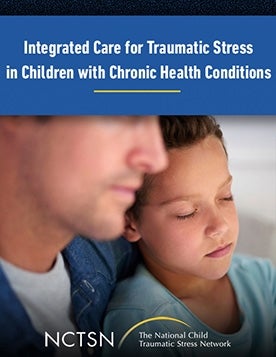
Helping a Family with Traumatic Stress when a Child has Cancer
Discusses an integrated approach to recognizing and responding to child and family traumatic stress when a child has cancer.
The following resources on Healthcare were developed by the NCTSN.

Discusses an integrated approach to recognizing and responding to child and family traumatic stress when a child has cancer.
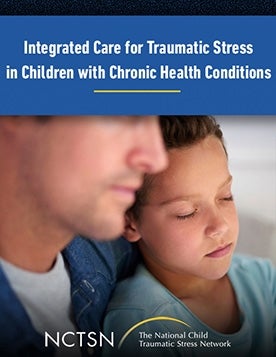
Offers information on integrated care approaches to supporting children and families dealing with traumatic stress and chronic health conditions.
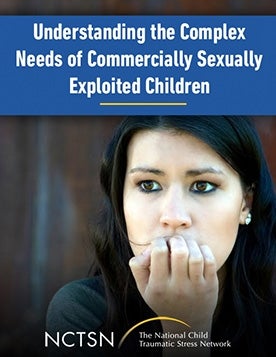
Explores the common reasons CSEC youth seek care, as well as challenges to victim identification.
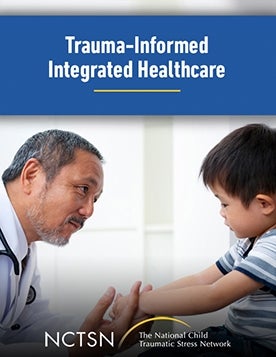
Provides a trauma-informed integrated healthcare model for conceptualizing young children exposed to violence and other traumatic stressors.
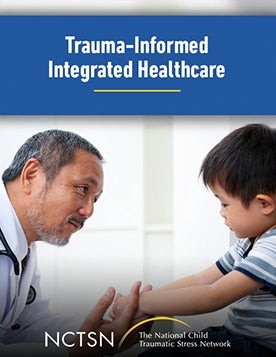
Lays a groundwork of fundamental knowledge about integrated health care and how it relates to trauma.
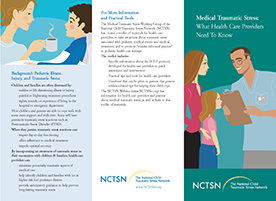
Provides a brief overview of medical traumatic stress, the D-E-F protocol (Reduce Distress, Promote Emotional Support, and Remember the Family) and traumatic stress reactions.
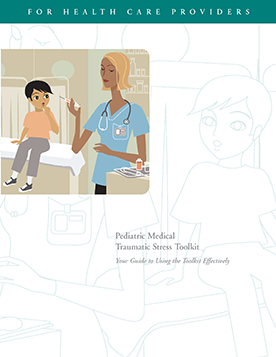
Outlines how to use the Pediatric Medical Traumatic Stress Toolkit for Health Care Providers effectively.
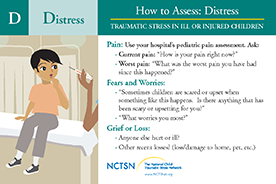
Provides tips for medical professionals on how to assess distress in ill or injured children and how to help their families.
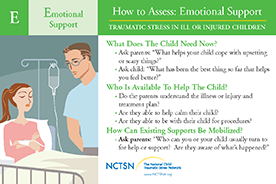
Provides tips for medical professionals on how to assess emotional support in ill or injured children and how to help their families.
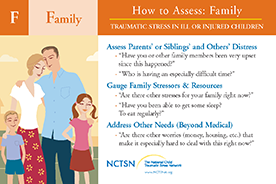
Provides tips for medical professionals on how to assess a family of ill or injured children and how to help their families.
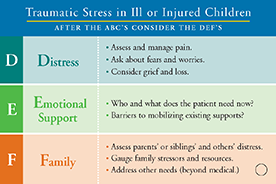
Offers information about distress, emotional support, and working with families after a medical trauma. These reference cards are a way to quickly screen if a parent, caregiver, or child is at risk for ongoing traumatic stress reactions after a medical procedure or trauma.
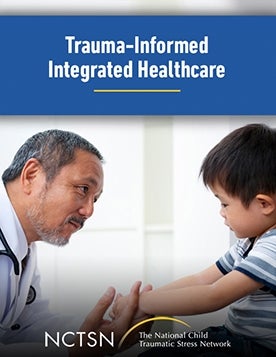
Describes what comprehensive care for children in the child welfare system looks like.